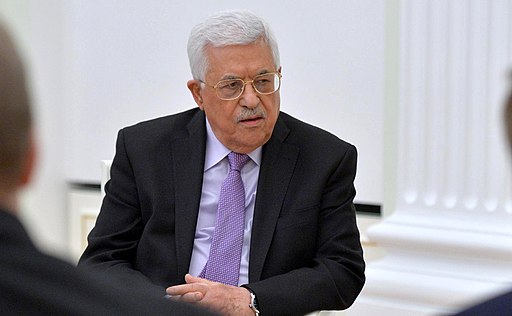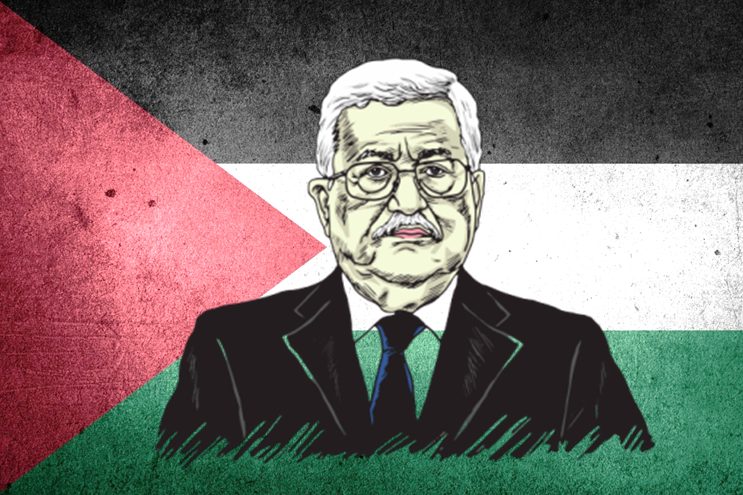Publications
INSS Insight No. 1415, December 15, 2020
“The day after” Abu Mazen need not differ from “the day before,” but that largely depends on Israel. First, Israel must ensure the stability in the public and economic realms in the West Bank that has enabled the relative calm in the region for more than a decade. Biden’s tenure may likewise help stabilize the Palestinian system in the context of “the day after.” The impending turnover in Washington has already inspired calm and cautious optimism in Ramallah. However, the future will also depend on Palestinian decisions: will the leaders of the Palestinian Authority and Fatah prefer to unite, rather than wage a violent struggle for power, and will the future leaders understand that their survival requires a close connection to Israel? And perhaps a young generation, free from the rhetoric of the past, will rise to power, lending priority to the goal of a state “here and now.”
The current period reflects a multi-faceted national crisis for the Palestinians, with a marked departure from any strategic goals they have pursued, chief among them statehood. The split between the Gaza Strip and the West Bank has deepened, and the process of internal reconciliation has failed consistently. In addition, the international community and the Arab world have begun to despair of the Palestinian issue (highlighted by the promotion of normalization with Israel although a solution to the Israeli-Palestinian conflict has not yet been reached); and the Palestinian leadership has no real vision that it can present to the collective in the territories, except for sabr (patience) and summud (steadfastness) – veteran principles that many Palestinians feel do not address their current plight.
In Israel, it is difficult to understand the complexity of Abu Mazen. The tendency to read him through an Israeli prism creates a dichotomy whereby the Palestinian leader is either a partner for peace or a recalcitrant enemy. In practice, Abu Mazen embodies contrasts that largely reflect the complex portrait of the entire Palestinian system. On the one hand, he adhered to the political process and in principle disliked the armed struggle, but on the other hand, as someone who himself experienced the Nakba, finds it difficult to take national historic decisions that involve compromise on the core issues of the conflict, especially refugees and Jerusalem.
Abu Mazen therefore became both an asset and a burden for Israel, as well as the Palestinians. He enabled strategic stability in the West Bank despite the profound shockwaves of the past decade; contributed to the Arab Spring bypassing the Palestinians; blocked Hamas advances; and maintained close ties with Israel. At the same time, he adhered to a dogmatic political line, losing political opportunities – most notably the proposals raised in the Annapolis talks – which led to the ossification of the Palestinian leadership, while he headed a regime plagued by corruption and human rights abuses. His tenure will likely go down in history as the best and worst the Palestinian system has known, especially in the West Bank: stability and prosperity hand in hand with a deep and lasting crisis.
Among the many strategic challenges confronting Israel today, most notably the coronavirus crisis, are preparations for "the day after" Abu Mazen. This is not a Palestinian issue only, but an issue that is expected to directly affect Israel's strategic standing. At least for now, it is likely that Abu Mazen's departure from the arena will leave the Palestinian system suspended in uncertainty: without a clear mechanism or procedure for the transfer of power, without a designated successor (and with a rather unimpressive list of candidates), with the possibility of a power struggle over claims to the throne within the ranks of Fatah and a split between the powers of the government currently held by Abu Mazen (Palestinian Authority, PLO, and Fatah), a deepening rift between the Gaza Strip and the West Bank, and Hamas’s seizure of opportunities to consolidate its power in the Palestinian system.
Despite the difficult questions, a number of key scenarios are now taking shape vis-à-vis Abu Mazen's departure: unification of forces of all those claiming Abu Mazen's legacy in order to stabilize Fatah's rule, at least for an interim period until a dominant leader emerges from the ruling group; development of violent clashes between rival camps in Fatah; the possibility that those struggles will be difficult and prolonged and will undermine Palestinian rule, creating anarchy and "cantons" in the West Bank, controlled by local leaderships or armed militias; or an immediate appeal by the Palestinians after Abu Mazen's departure for the realization of an actual, far-reaching reconciliation, a move that will be accompanied by general elections and Hamas’s integration into the Palestinian leadership and government institutions.

However, "the day after" Abu Mazen does not have to be different from "the day before," and much here depends on Israel. First, Israel must ensure the stability of the public and economic realms in the West Bank that has enabled the relative calm in the region for more than a decade. The majority of the public, it seems, is not interested in the adventures that accompany internal wars, and has generally evinced limited interest in the emerging map of factions and camps (most of the public is focused on the problems of the coronavirus and the economy).
Israel must find an informed balance between a "position of careful observation" and caution regarding any involvement in the internal Palestinian arena, and a "coronation of kings" – a step that burned Israel in the past, as in the case of Bashir Ghummayel in Lebanon. The right path for Israel is based on a combination of contributing to the stabilization of the Palestinian system, mainly through civilian moves, and closely monitoring developments in the Palestinian system that would likely affect Israel adversely; in turn, it must not shy away from cutting off elements that pose a serious threat, for example, an extremist takeover of the West Bank, first and foremost by Hamas.
It is important for Israel to coordinate its actions with the key forces in the region that show interest and involvement in "the day after" issue, including Egypt, Jordan, and the Gulf states, while trying to mobilize their political and economic power to stabilize the Palestinian system. In this context as well it is important not to get caught up in the adventures of "running" candidates on behalf of the regional forces.
Biden's tenure may likewise help stabilize the Palestinian system in the context of "the day after." The upheaval in Washington has already inspired calm and cautious optimism in Ramallah: Abu Mazen ended the prolonged crisis with Israel; is preparing to renew ties with the US administration; and has begun to hope for the renewal of US economic aid as well as for the start of political negotiations, while Washington returns to play the role of what to the Palestinians is a fair mediator. Such a reality is likely to include tensions between Israel and the Palestinians (and possibly between Israel and the new US administration), but may at the same time establish a framework for direct dialogue between the parties, which will contribute to stability in the Palestinian Authority even after Abu Mazen's departure.
The future will of course also depend on the decisions that the Palestinians must take. Will the leaders of the Palestinian Authority and Fatah prefer to unite, rather than launch a violent struggle for power (such as what occurred in the Soviet Union after Stalin's death, which subsequently allowed the rise of one dominant leader)? Will the leader or leaders understand that that an agenda of confrontation with Israel likely means a short tenure, and their survival requires a close connection to Israel? And perhaps a young generation will rise to power – a generation free of the rhetoric of the past that will prioritize the goal of a state "here and now," even if modest in size and status, over the continued adherence to a fading and receding vision. If so, this will also obligate Israel to take a historic national decision on the question of the separation between the two peoples.



